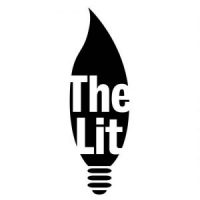by Özgür Peksen-Saccone
The sounds of my footsteps were mixing with my luggage wheel’s sound in the airport. The first colors of the day were playing with my shadow in the long corridors I had to fit my 33 years of living in one suitcase. Excitement, fear, hope of freedom, the sacrificing of my career and leaving it behind. 2016 was the year that I last heard familiar voices, sounds of my city, my language, my mum. I didn’t know who would be able to say my name correctly from this point on. When I saw my awakened face reflected in the plane window, New York was slowly welcoming me. The smells, sounds, languages and faces already appeared to change. Nina Simone was singing in my mind and my heart beats were fast. Was it real that I was in New York?
Finally, handing my documents to the border police was my first exam in English. It was a mistake to think that I knew English at that time. A different, fast-speaking and angry voice was asking me questions but I was far from understanding. Suddenly I was a child in elementary school and my teacher was angrily staring at me. Short silences, looking at each other. My legs were shaking. My teacher finally gave up and let me go.
The first months in New York—how chaotic they were! Streets, trains, the energy of the city—I was the one trying to find my way around without knowing anything. I was a little alien walking around. Asking people things turned out not to be helpful when my hearing gave me different words than what they said. “Union Square” was turning into “Onion Square”; all of the words, announcements and peoples’ voices were spinning in my mind. What an irony it was! Language was my life. Sentences and words were my points of strength. They helped me to be a good lawyer and free my clients, get them out of jail and help my female divorce clients declare their independence. My voice was quieter now while I was struggling to understand this new world with my 200 words of English.
Was working in a restaurant really helping me to improve my English language skills?
“White egg omelet, did you understand me? Can you really speak English? Repeat after me now! Answer me!” I was silently tucking these words away into the pocket of my waitress’ apron and consoling myself: ‘It will be okay, you will be okay.’
I was the one giving up buying water after repeating myself five times when the cashier could not understand my “w” sound. It was not enjoyable anymore to buy sesame bagels after people would laugh at my accent. I was the one calling it a night after eating two pieces of sushi because I did not know how to use chopsticks and could not remember the word “utensils” in order to ask. I was the one asking for “pepper” but being given paper instead. I was also the one belittled by five people after them listening to my excited and long-winded talk about world politics, by them asking me “Where is your broken accent coming from??” I was the one who had to hear the accusation of a woman on the phone asking me: “Are you sure you are legal here? Are you sure you do not need a translator?” When they heard that I was a foreigner, the game changed. Was my accent or my lack of the English language the problem or was it other peoples’ mentality? Or rather, was it perhaps my bad luck in meeting these people?
While I am sitting and writing about my last five years, I feel a lot has changed. Language, challenges, reading and studying into the late hours, as well as my wife’s and my sister’s support have taught me a lot. Focusing on the English language during these 5 years at school increased my English language skills and my confidence. I took all of my negative experiences and created a sense of humor. Peoples’ judgmental questions about my accent became more of a curiosity. I feel that I have become this language. I feel like I have started to exist and become more visible in the English language, in the English speaking world.
I can understand and connect with the writer Amy Tan, who wrote about her mother’s struggles in a different world due to the English language. Amy Tan tells about her mother who immigrated from China to the USA in her essay “Mother Tongue.” She tells us about her mother’s difficulties of being a foreigner, an immigrant, a mother in another world, another country with another language. She talks about how her mother was discriminated against because of her lack of the English language and yet still was able to speak a really simple, clear and direct version of her own “broken English.” Amy Tan blends all the different kinds of English which she learned, heard and used in her life and she builds a style of writing which allows her mother to read her own book easily. When her mother reads her book easily Amy Tan reaches her goal as a writer.
I can feel and understand Amy Tan’s mother.. She is near me now. We are silently sitting side by side, watching and listening to New York City. A warm breeze is touching our faces.. When our eyes catch each other I ask her “How is life now?” She smiles, and whispers, ”So easy to read.”
Özgür Peksen-Saccone was born in Turkey. Now New York based, she is a current pre-clinical health student at LaGuardia Community College. During high-school in Turkey, her short stories were published in local newspapers. She studied music before continuing on to study law at Marmara University in Istanbul, after which she practiced family and criminal law for 13 years. She came to New York City in 2016 to improve her English but later decided to stay. She completed the ESL and TOEFL courses before applying to LaGuardia hoping to enter the college OTA program in order to add another profession to her resume. She is an activist and a member of the LGBTQ+ community. She likes to express herself through music and painting, as well as recently rediscovering her love of writing, now in her second language English!
Image credit: “Suitcases,” Mrs Teepot. Flickr CC BY-NC-ND 2.0.

